Today I would like to share with you this important news: "Some researchers from Valencia develop a system that allows the early diagnosis of lung cancer".
A new system based on epigenetic biomarkers, for the early diagnosis of reliable, minimally invasive and affordable lung cancer, allows to help a faster detection of this type of tumor and, thus, reduces the current high mortality rates.
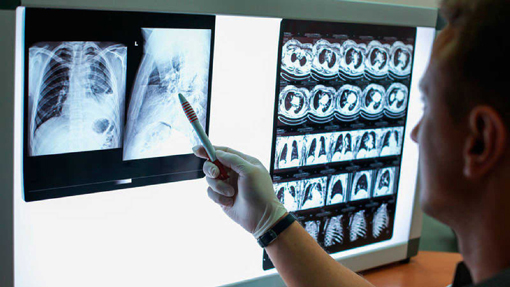
Radiographs of the epigenetic biomarkers of lungs with tumor
This epigenetic model is especially indicated in those cases in which the biopsy is not feasible or when the cytology is not conclusive, as reported to EFE from the Health Research Institute (IIS) of the La Fe Hospital in Valencia, an entity that has patented the system internationally.

La Fe Hospital
The IIS of La Fe and the Valencian company of advanced services of cancer prevention and genetic counseling ,“Bemygene”, have signed a license agreement to commercialise and promote the development and commercialization of this epigenetic kit.

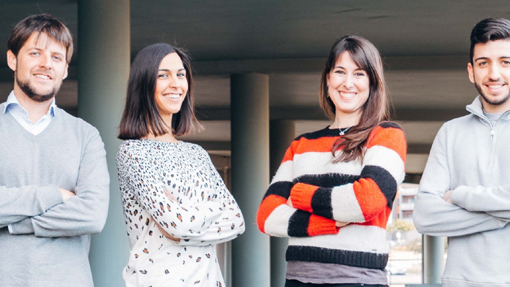
Team of Bemygene
They have also signed a license agreement to market it the Bellvitge Biomedical Research Institute (IDIBELL), the Catalan Institution for Research and Advanced Studies and the Center for Applied Medical Research (CIMA) of the University of Navarra.
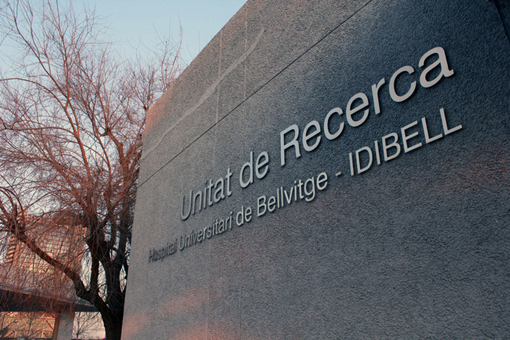
IDIBELL
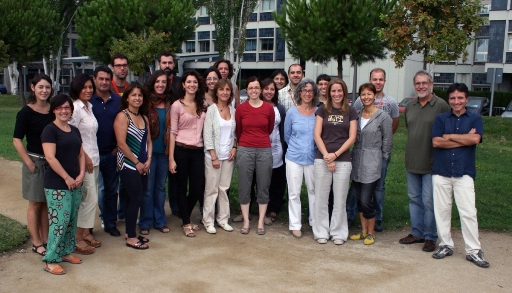
The team of IDIBELL
The system allows combining the epigenetic state of four genes to generate a probability value of lung cancer, customised for each patient.
The Director of the Epigenomics Unit and member of the Biomarkers and Precision Medicine Group of IIS La Fe, Juan Sandoval, is the principal investigator of this research project, that will be transferred to the patient, through a diagnostic kit.
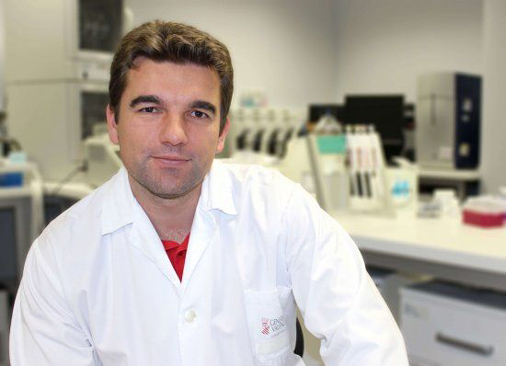
Juan Sandoval
The kit is the result of research funded with FEDER funds and the Carlos III Health Institute and collected, in the article “A novel epigenetic signature for early diagnosis in lung cancer”, published in the scientific journal Clinical Cancer Research, in 2016.
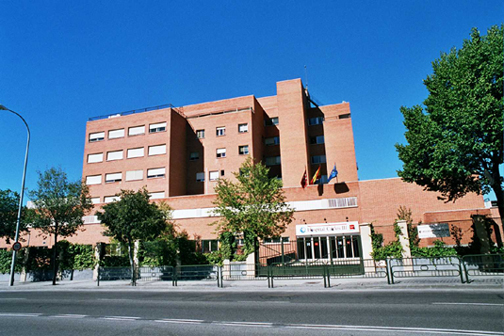
Carlos III Hospital
Bemygene has developed a study that has allowed to define the segment of patients, in which the kit will be really necessary, due to the limitations of conventional techniques, thus favoring its future introduction into the clinical routine. According to Sandoval, this model of epigenetic markers "can help improve the early diagnosis of lung cancer and, therefore, reduce the current high mortality rates".
"It is a very reliable, minimally invasive and affordable kit, which complements and improves the systems currently applied and also allows the diagnosis of areas where it is not possible to use conventional techniques, as they are not biopsy-able", he assures. Sandoval, who considers it a "determining aspect" for its future incorporation into the health system.
The lung cancer is the leading cause of cancer mortality, worldwide, and the evolution of the patient is closely linked to the stage of the tumor, at the time of diagnosis.
Due to its late clinical manifestation, most patients are diagnosed in advanced stages, when curative treatment is no longer possible.
Currently, cytology is the standard method for the diagnosis of this type of cancer, in minimally invasive respiratory samples, but it is a method with low sensitivity. Therefore, there is a need to search for new molecular biomarkers, that improve the diagnostic process of lung cancer, according to the sources.
The main contribution of this diagnostic kit, in bronchoaspirates and sputum induced, in addition to its high sensitivity, is its ability to produce a continuous range of predictions, between 100% and 0% (positive-negative).
The specialist oncology staff will be able to take various actions, according to the predictions, such as carrying out additional tests in doubtful cases.
The development of lung cancer usually has associated a morbidity that prevents the performance of biopsies and, in these cases, it is indicated the application of this epigenetic tool that, in addition, is able to identify false negatives from cytology tests. "The combination of this epigenetic model, highly sensitive and specific, along with standard clinical methods, can help improve the diagnosis of lung cancer and decrease the current mortality rate", he says.
Being a minimally invasive and affordable technique, its use could be extended to the routine hospital clinic and the next step, according to sources, is the promotion of a clinical trial, from the “IIS La Fe”, that allows to evaluate the application of the algorithm, in a real clinical environment.
According to the person in charge of Bemygene, Teresa Valdés Sánchez, the agreement to develop this system implies the possibility of getting patients a technology that could significantly increase the probability of success of lung cancer therapies.

Teresa Valdés
Well, I hope that this article has seemed as interesting to you as to me.
Until my next post, kind regards,
Luis.
Sponsored by Costaluz Lawyers.
Please click below:
